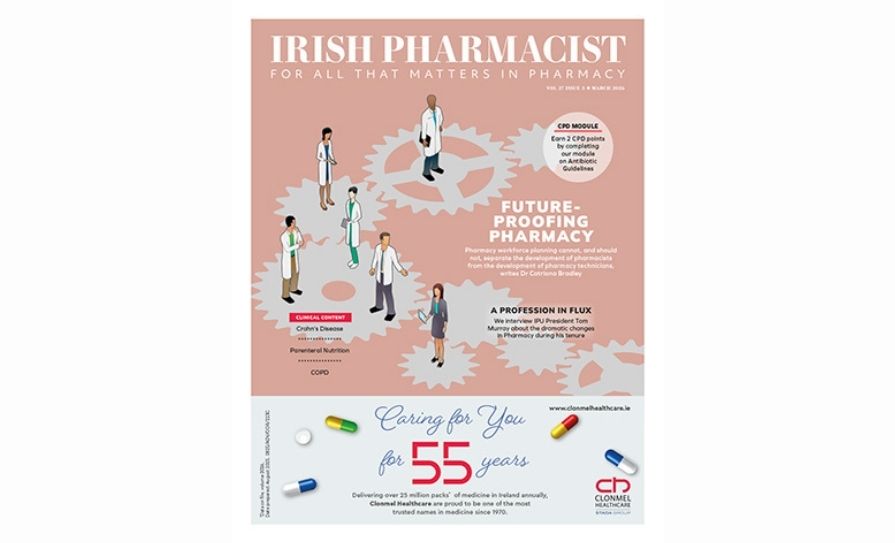Is AI our friend, foe, or both, asks Fintan Moore
There used to be a joke many years ago that there are three forms of intelligence: Human intelligence, animal intelligence, and military intelligence… in that order. It was possibly a bit mean to the military, but then again, a lot of people might say it was funny because it was true.
Personally, I think it’s a bit unfair to the animals — if a dog has food, shelter, walks, and company, he’ll invariably be happy, whereas a depressingly large number of humans are still liable to work themselves to an early grave trying to accumulate more stuff that they don’t need.
Anyway, the joke has been overtaken by time and the advent of Artificial Intelligence (AI) as a fourth option — and it’s hard to know where to rank AI.
There are definitely ways in which AI can make life easier. I’ve spoken to computer programme developers who use AI to do some of the work they used to delegate to more junior programmers, and they say the AI product is accurate and available almost instantly. On the flip side, I’ve spoken to university lecturers who frequently see work handed in by students that has been generated partially or fully by AI, with mixed results in terms of quality.
One lecturer even recognised that a thesis submission actually contained some of her own work, which the student had unwittingly plagiarised by sloppy use of AI. That story probably counts as a failure of human intelligence but it does show that AI, if left to its own devices, won’t always be your friend, which is a point worth remembering in the world of pharmacy.
There will undoubtedly be ways that AI can help us to do our work as pharmacists. For example, if patients want to learn more about their medication, they can quickly and easily ask AI a question and get an instantaneous response.
However, there is an inherent risk involved in doing this because AI assembles its answers based on
a trawl of sources on the Internet, and it combines relevant words into sentences using the frequency of them appearing together in those sources. This is an impressive feat, but it’s not foolproof by any means. The smart way forward will probably involve training selected AI to acquire information only from specific sources that can be trusted, and then recommending patients to preferentially use this AI.
Five years later
It’s hard to believe that five years have passed since Covid-19 crashed into everyday life. In pharmacy, the ‘Big Bang moment’ was probably the morning of Thursday 12 March, when Leo Varadkar announced that schools and colleges would close for two weeks, large gatherings were cancelled, and that people should work from home if possible. That pressed the pandemonium button and everyone rushed to stock up on bread and toilet roll.
I was off that morning, so I watched the speech at home then drove to work to troubleshoot the craziness. Some patients wanted three months of their medication because they had been told some nonsense along the lines that their brother-in-law’s barber’s niece’s boyfriend worked as a Garda driver for the Minister of Defence, and
that the army were about to start patrolling the streets and locking down the country. I refused point- blank to give more than one month of anything, and that kept things just about manageable, but it was all still pretty manic.
There will undoubtedly be ways that AI can help us to do our
work as pharmacists
So five years on, what’s the legacy of the virus? We still have Healthmail, which although far from perfect, still beats the hell out of the pre-Covid medieval world of having no emailed prescriptions whatsoever. So in my book, that’s a win.
We’re still not sending the yellow bags to PCRS, which is good in one way, but finding space to store the paperwork is a challenge in itself.
The use of Zoom for education and meetings is a good way to use time efficiently. In my own pharmacy,
I’ve kept the plastic screens to stop people coughing and spluttering various bugs onto me and my co-workers. The biggest change
I made during Covid was closing for an hour at lunchtime. Nobody complained because we pitched it as being necessary for cleaning down the pharmacy, and now I wouldn’t even dream of not closing for lunch. It probably leads to a few lost sales, but the benefits massively outweigh any losses. As the saying goes, never waste a crisis.
Wasters
Speaking of waste, pharmacies seem to generate an almost depressing amount of plastic and paper waste. A lot of it is unavoidable due to tablets being blister-packed, and patients needing to get patient information leaflets, and that everything needs to go into bags, and to be labelled. However, there are other times when I have to wonder who is making decisions in some companies that send in boxes of medication in shrink- wrapped bundles for no apparent reason, or put large amounts of bubble-wrap in cardboard delivery boxes to ‘protect’ unbreakable smaller cardboard boxes.
Companies also insist on posting out information on new products that I have no patients currently taking, so I simply bin the material, knowing that I can look it up online if a prescription ever comes. As PCs, keyboards, screens, pricing guns, printers, and other tech get upgraded, the old versions are often still serviceable but end up being dumped to be recycled (hopefully) instead of being donated for use by schools or charities. It always seems a shame that there is not more done to reduce waste generally across the sector.
Fintan Moore graduated as a pharmacist in 1990 from TCD and currently runs a pharmacy in Clondalkin. His email address is: greenparkpharmacy @gmail.com.







